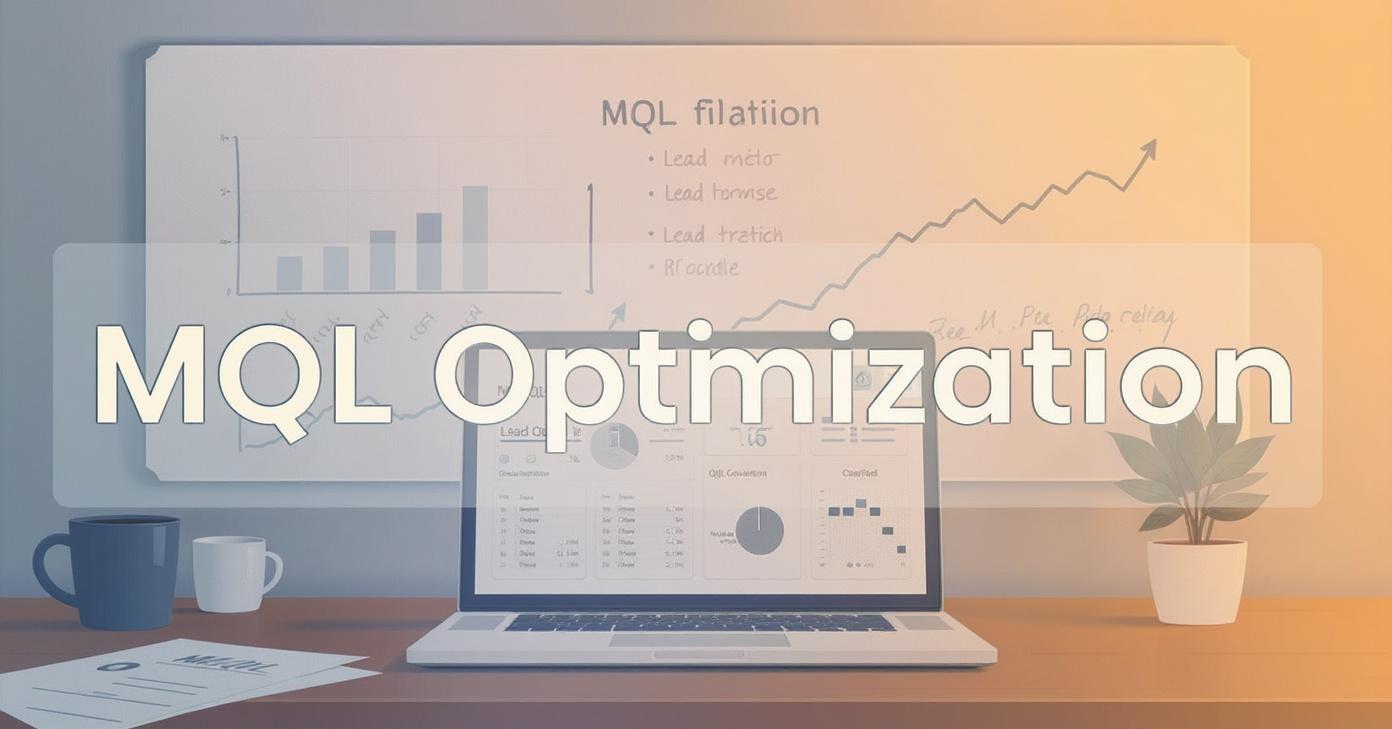Optimizing MQLs: Techniques to Accelerate Your Sales Pipeline

In B2B marketing, generating leads is only half the battle. Ensuring those leads convert into customers requires focused MQL Optimization. Marketing Qualified Leads (MQLs) are prospects who have demonstrated significant engagement and interest, indicating they are closer to making a purchase decision. Optimizing MQLs ensures that sales teams engage with high-potential leads, improving conversion rates, shortening sales cycles, and maximizing ROI.
Without proper MQL optimization, organizations risk passing low-value leads to sales, resulting in wasted resources and lost opportunities. Effective MQL strategies provide a structured approach to identify and nurture leads, ensuring that the pipeline remains filled with prospects most likely to convert.
Establishing Clear Lead Scoring
Lead scoring is the backbone of MQL optimization. Assign points to leads based on behavioral engagement and demographic fit. Behavioral actions include webinar attendance, content downloads, website visits, email opens and clicks, and social media interactions. Demographic factors such as company size, role, industry, and location ensure alignment with the ideal customer profile.
High-quality leads score well on both engagement and demographic criteria. For instance, a decision-maker downloading multiple product-related resources will rank higher than someone casually browsing the website. Scoring thresholds prioritize high-potential leads, allowing marketing to nurture other prospects while sales focuses on the most promising opportunities.
Leveraging Marketing Automation
Marketing automation platforms like HubSpot, Marketo, Salesforce, and Pardot are essential for scalable MQL optimization. These tools track lead activity, segment prospects based on behavior and fit, and trigger personalized nurturing campaigns automatically. Automation ensures consistent follow-up, accurate scoring, and timely engagement with leads.
Personalized campaigns improve engagement by delivering relevant content tailored to the lead’s stage in the buyer journey. For example, a lead who downloads a product comparison guide could automatically receive a webinar invite or demo request. Such targeted interactions increase the likelihood of conversion while reducing manual effort for marketing teams.
Aligning Marketing and Sales Teams
MQL optimization is most effective when marketing and sales teams work in alignment. Misalignment often leads to poor lead quality, missed opportunities, and inefficiencies. Establishing Service Level Agreements (SLAs), clear lead definitions, and feedback loops ensures both teams are accountable for lead quality.
Regular collaboration via shared dashboards, meetings, and real-time reporting allows marketing to refine scoring models and adjust nurturing campaigns based on sales insights. Feedback from sales on lead quality and conversion rates ensures continuous improvement, resulting in a more predictable and efficient pipeline.
Content Strategy to Nurture MQLs
Content plays a critical role in MQL optimization. High-value assets like eBooks, whitepapers, webinars, and case studies attract engaged prospects while revealing their intent. Mapping content to the buyer journey ensures leads receive relevant information at each stage: awareness, consideration, and decision.
Top-of-funnel content educates prospects about industry challenges and solutions. Mid-funnel content, such as product overviews, comparison guides, and demos, engages leads more deeply. Bottom-of-funnel content supports conversion with case studies, ROI calculators, and customer testimonials. Monitoring engagement metrics helps identify high-value leads and optimize content strategy for better MQL quality.
Continuous Measurement and Refinement
MQL optimization is an ongoing process that requires continuous measurement. Key performance indicators such as engagement scores, conversion rates, lead velocity, and opportunity-to-close ratios provide insight into lead quality and scoring effectiveness.
Analyzing these metrics allows marketers to refine scoring models, adjust nurturing campaigns, and improve lead quality. For example, if webinar attendees convert faster than PDF downloaders, points for webinar engagement can be increased. Continuous optimization ensures MQLs remain high-quality, relevant, and aligned with sales objectives.
Best Practices for MQL Optimization
To maximize lead quality and conversions, businesses should follow these best practices:
-
Define precise MQL criteria: Use behavioral and demographic data to identify high-potential leads.
-
Implement marketing automation: Track engagement, segment leads, and trigger personalized campaigns.
-
Align marketing and sales: Maintain SLAs, feedback loops, and clear lead handoff processes.
-
Segment and personalize messaging: Tailor communications based on lead behavior and intent.
-
Refine scoring models continuously: Adjust points and thresholds based on performance data.
-
Map content to buyer journey stages: Deliver relevant resources to guide leads from awareness to decision.
Implementing these practices ensures MQLs consistently deliver high-quality leads to sales, enhancing conversion rates and pipeline efficiency.
Common Challenges in MQL Optimization
Challenges in MQL optimization include:
-
Inconsistent MQL definitions: Misalignment between marketing and sales can result in misclassified leads.
-
Fragmented data sources: Siloed data reduces scoring accuracy and insight.
-
Over-reliance on automation: While automation is valuable, human judgment is necessary for timely follow-up.
-
Changing buyer behaviors: Lead engagement patterns evolve, requiring continuous adjustments to scoring and nurturing strategies.
Addressing these challenges requires a combination of technology, collaboration, and data-driven decision-making to maintain lead quality and pipeline efficiency.
ROI of MQL Optimization
Investing in MQL optimization produces measurable benefits. Optimized leads convert faster, reduce sales cycles, and create predictable revenue streams. Companies implementing structured MQL strategies see higher lead-to-opportunity conversion rates, stronger marketing-sales alignment, and more efficient resource allocation. Insights from lead engagement and scoring also inform broader marketing campaigns, improving ROI and business performance.
Read Full Article : https://acceligize.com/featured-blogs/optimizing-for-mqls-strategic-tips-to-improve-lead-qualification/
About Us : Acceligize is a global B2B demand generation and technology marketing company helping brands connect with qualified audiences through data-driven strategies. Founded in 2016, it delivers end-to-end lead generation, content syndication, and account-based marketing solutions powered by technology, creativity, and compliance.
- Art
- Causes
- Crafts
- Dance
- Drinks
- Film
- Fitness
- Food
- Games
- Gardening
- Health
- Home
- Literature
- Music
- Networking
- Other
- Party
- Religion
- Shopping
- Sports
- Theater
- Wellness




